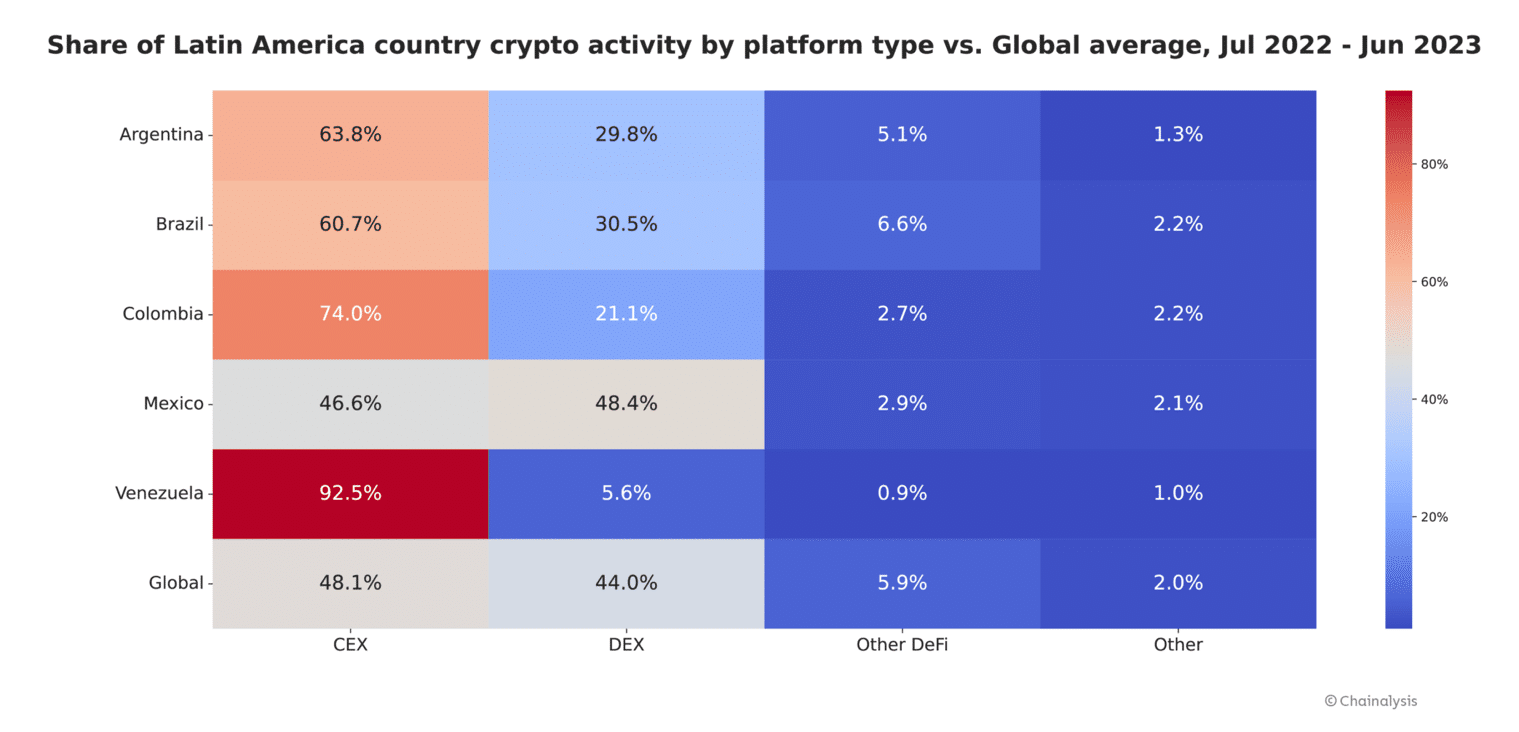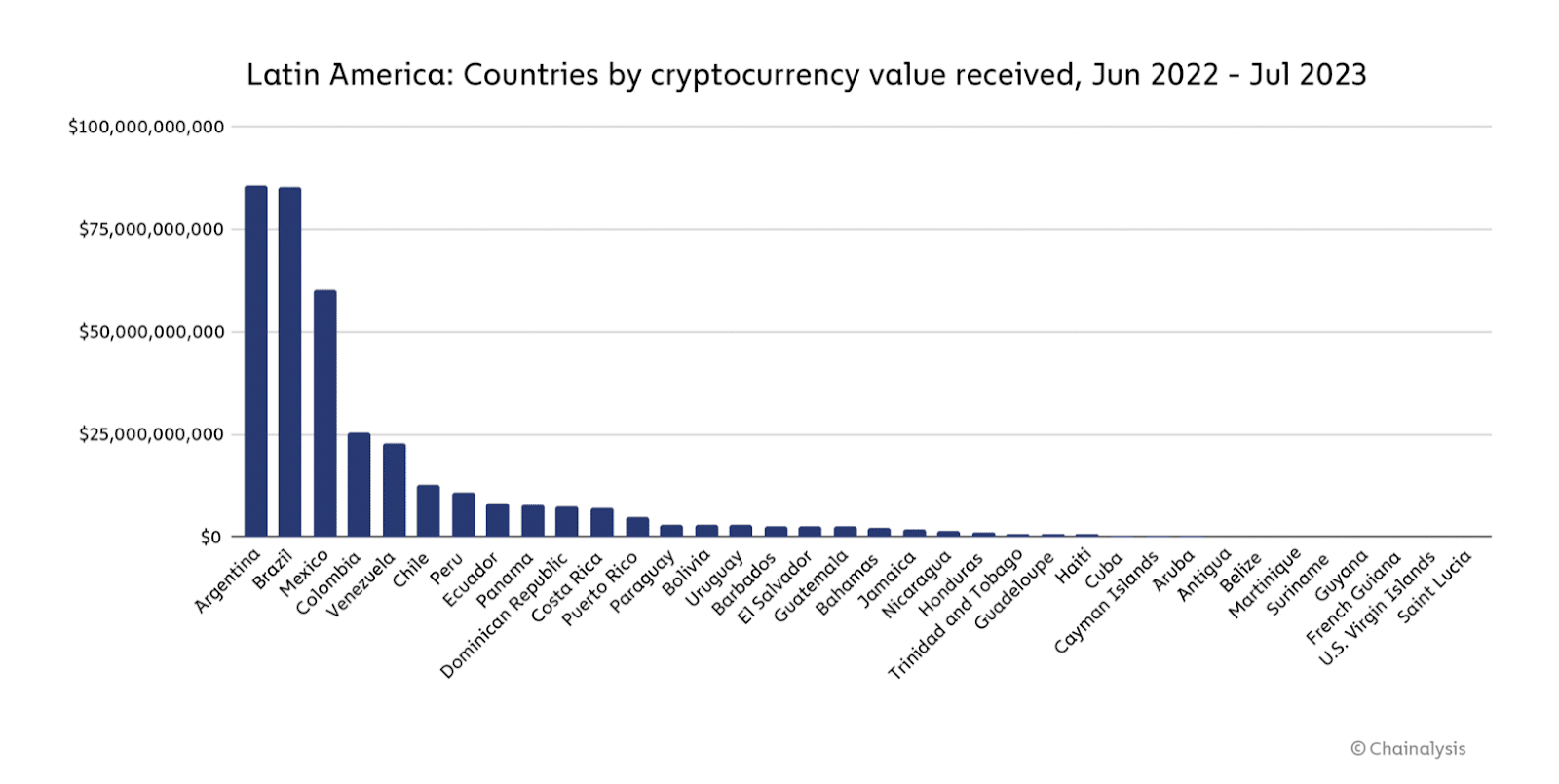A new report from blockchain analytics firm Chainalysis reveals that cryptocurrency users in Latin America strongly prefer centralized exchanges (CEXs) over decentralized exchanges (DEXs), unlike the rest of the world.
The report, which was released on October 11th, indicates that while the worldwide average for preferences in crypto platforms is 48.1% for CEXs, 44% for DEXs, and 5.9% for other DeFi activities, some Latin American countries have a strong inclination toward CEXs

In Venezuela, CEXs account for a staggering 92.5% of crypto platform preference, with DEXs only comprising 5.6%. Chainalysis cites Venezuela’s “complex humanitarian emergency” as a key reason for surging crypto adoption in the country.
Colombia also leans toward CEXs at 74%, with DEXs representing just 21.1% of preferences.
However, Argentina leads Latin America in total crypto transaction volume, receiving an estimated $85.4 billion in the 12 months ending July 1st, 2022. Argentina’s central bank recently banned crypto transactions for payment providers earlier this year to reduce exposure to digital assets.

The report further explains that Latin America has the 7th largest crypto economy globally, lagging behind regions like North America, Eastern Asia, and Eastern Europe. Yet Latin America’s preference toward CEXs over DEXs contrasts with broader worldwide trends.
Globally, the preference stands at 48.1% for CEXs, 44% for DEXs, and 5.9% for other DeFi activities. But countries like Venezuela and Colombia skew heavily in favor of centralized platforms.
Despite CEX preferences, Latin America still has strong overall adoption. Brazil ranks 9th in Chainalysis’ Global Crypto Adoption Index, with Argentina 15th and Mexico 16th. The region trails leaders like India, Nigeria, and Vietnam.







